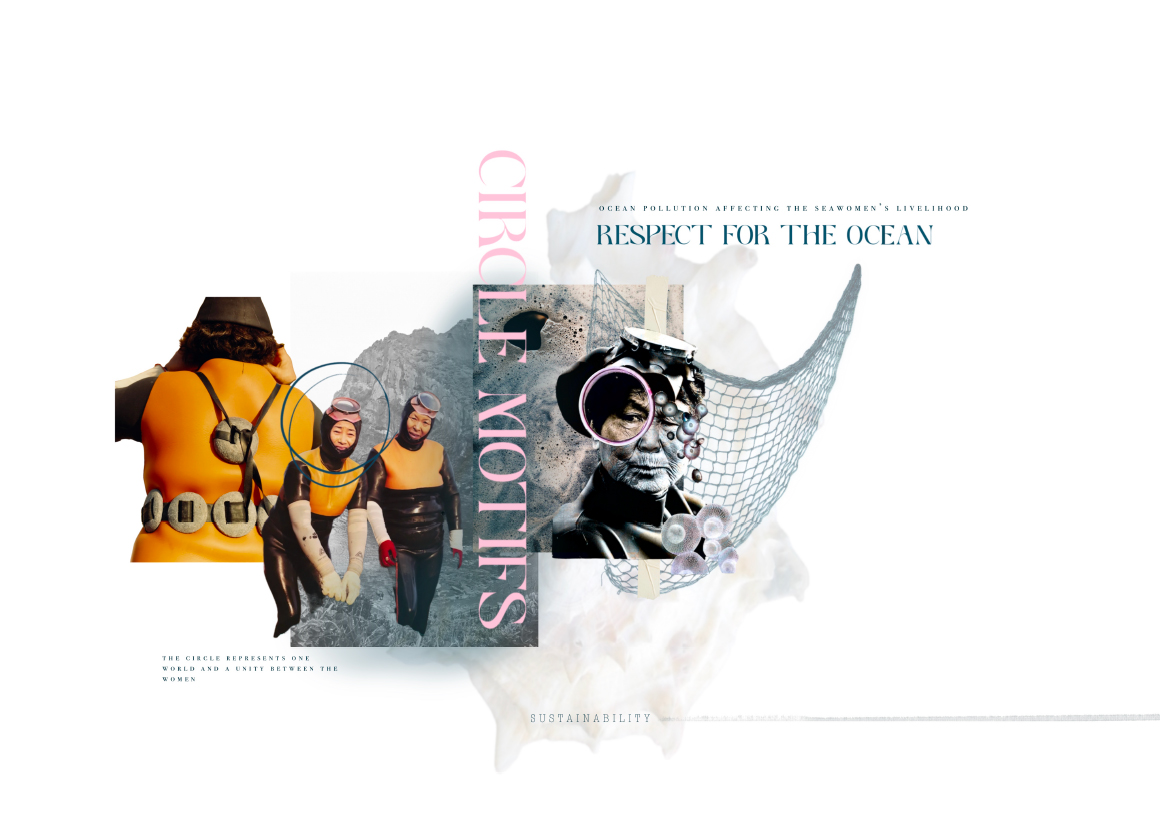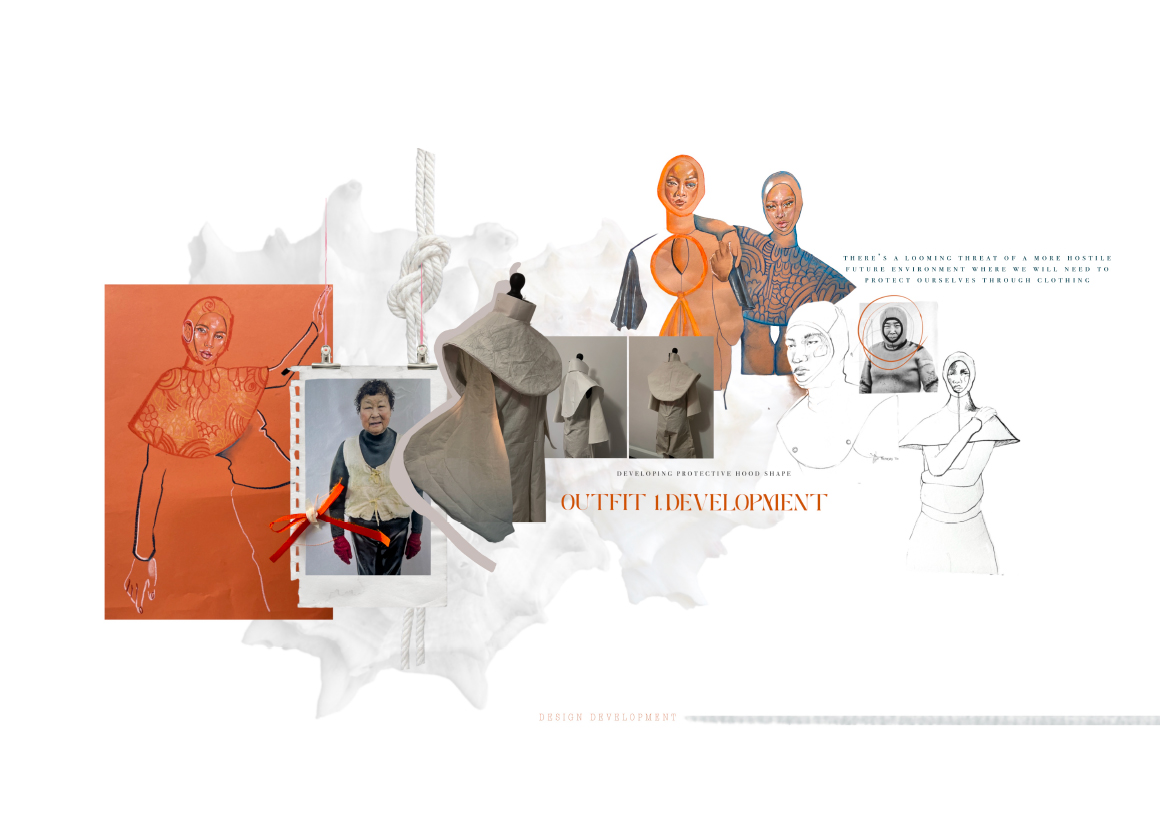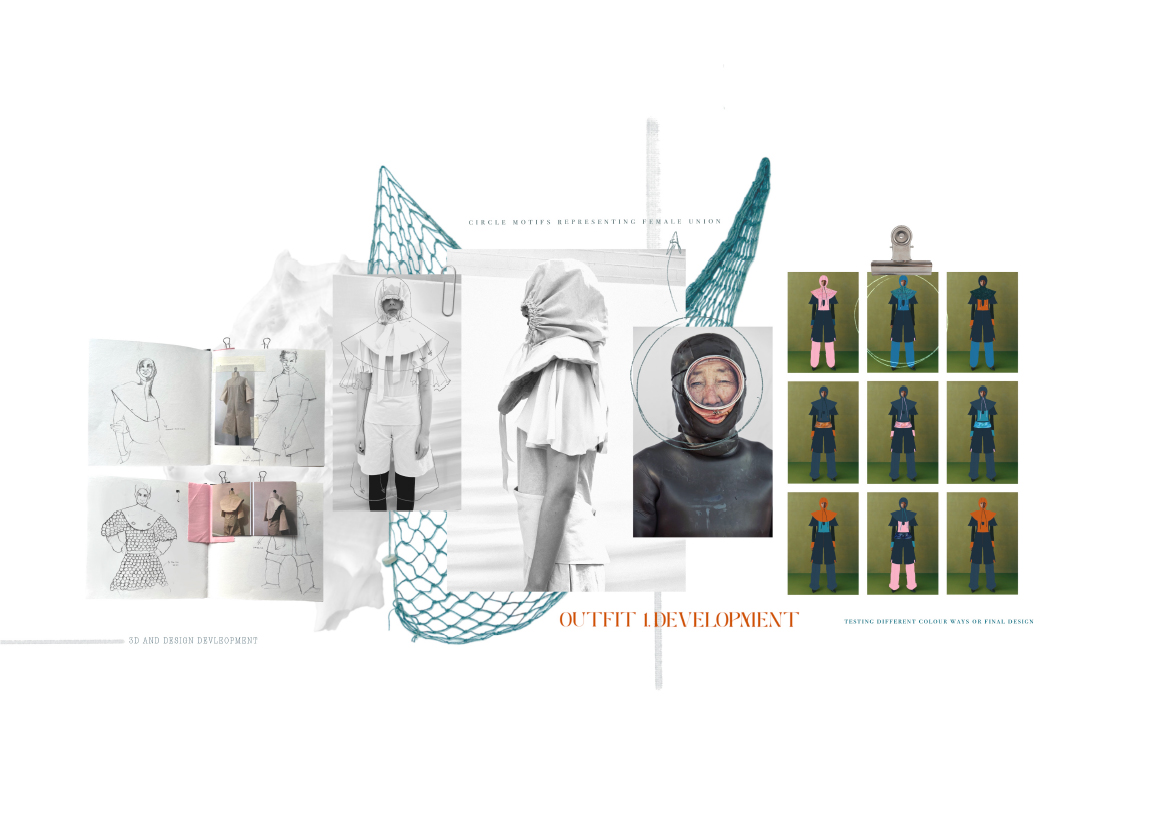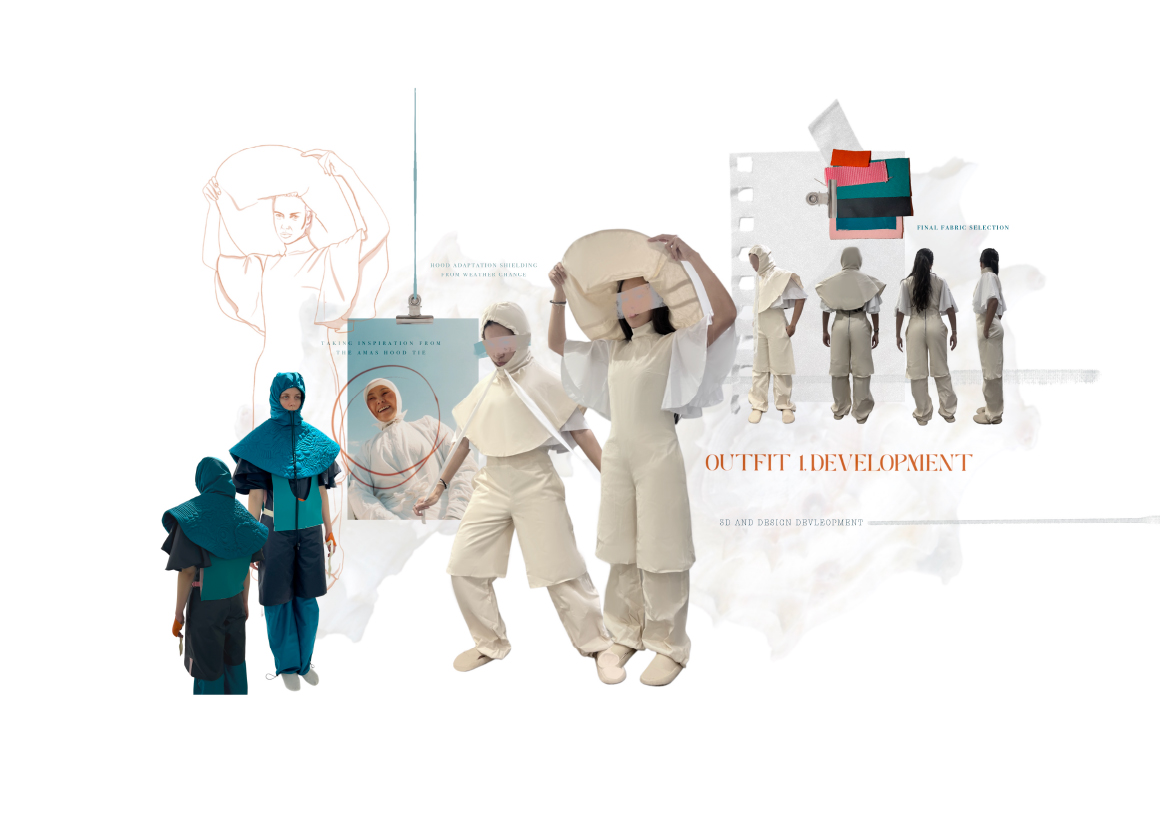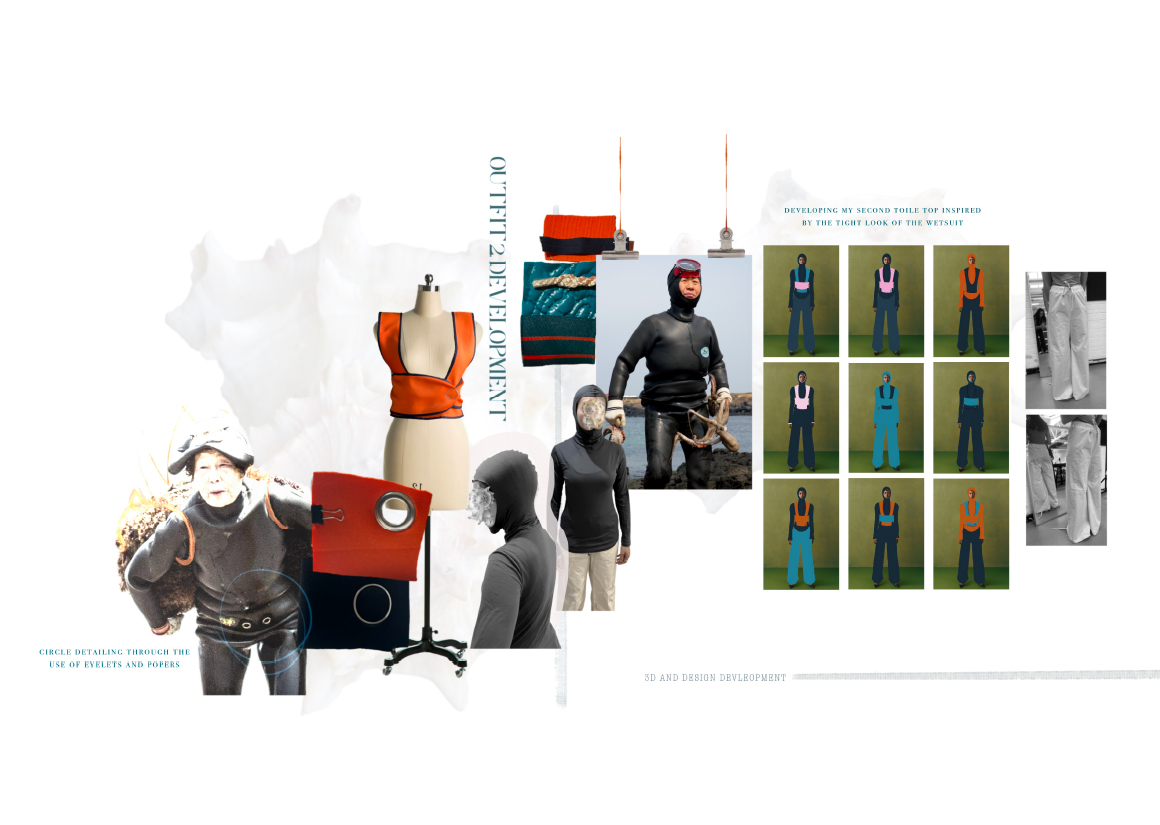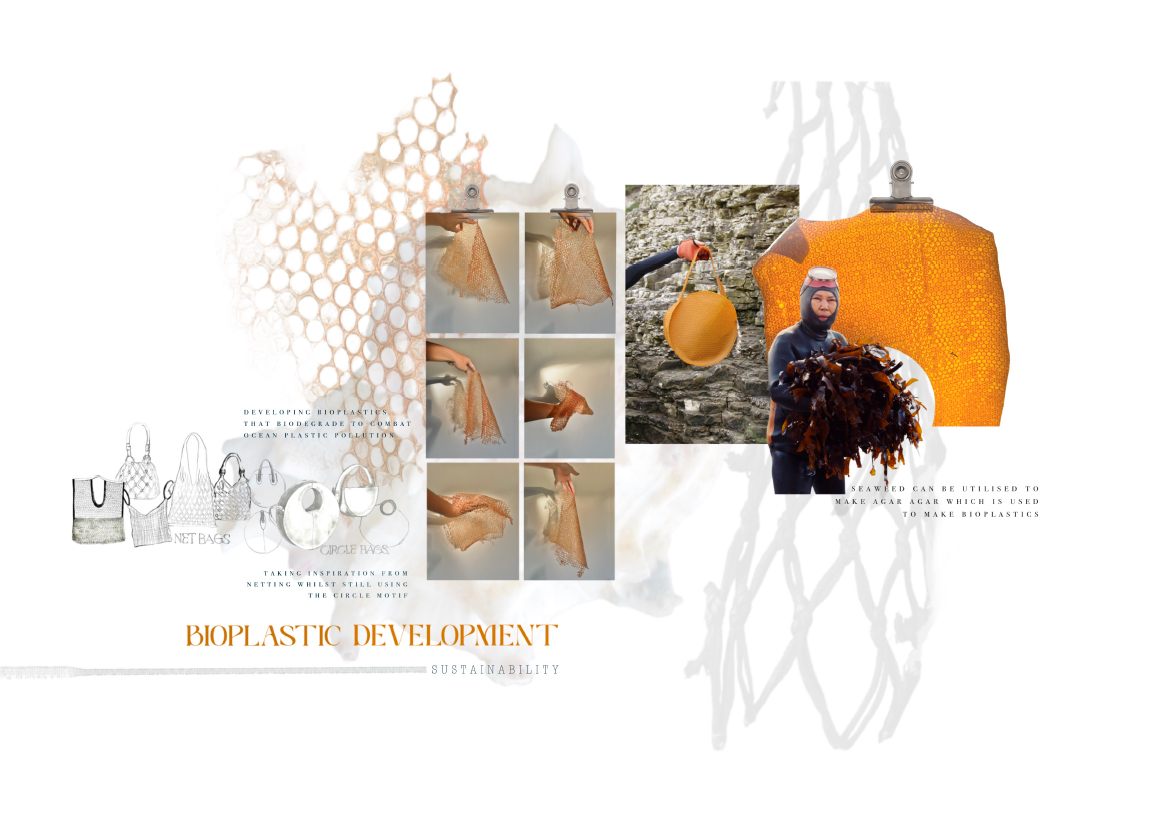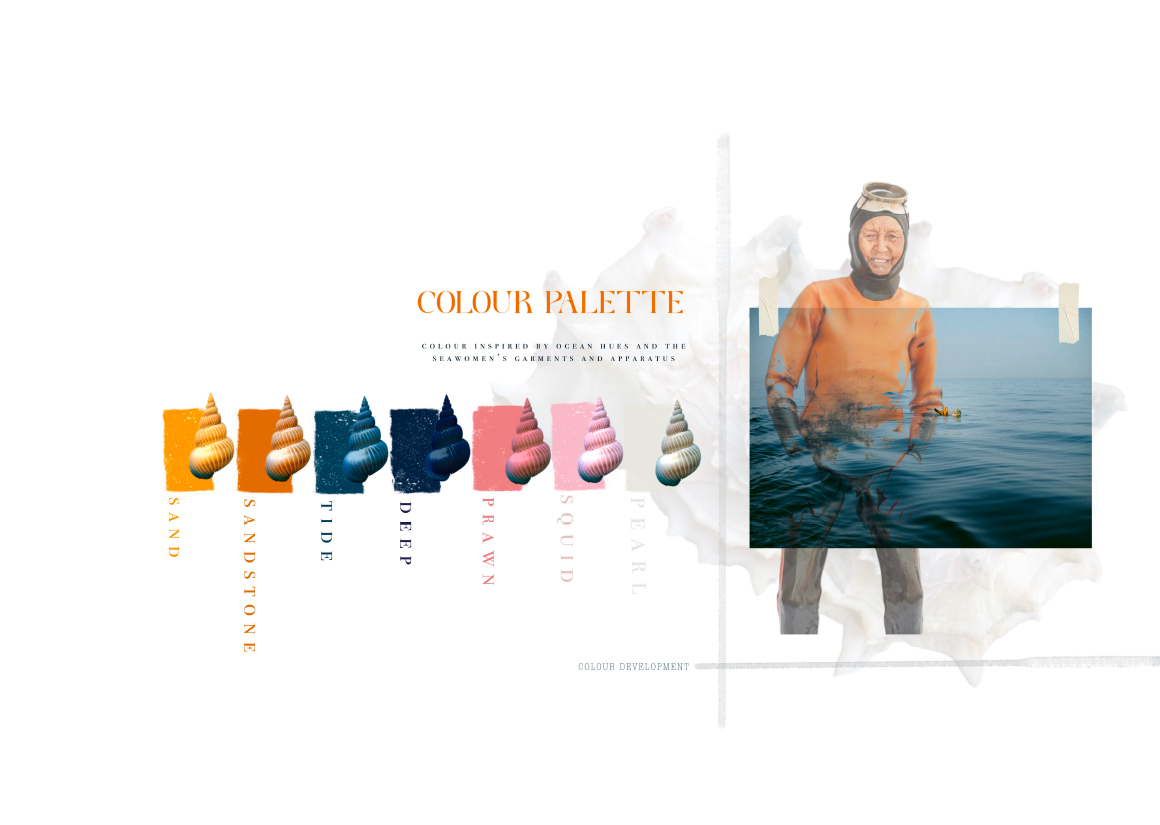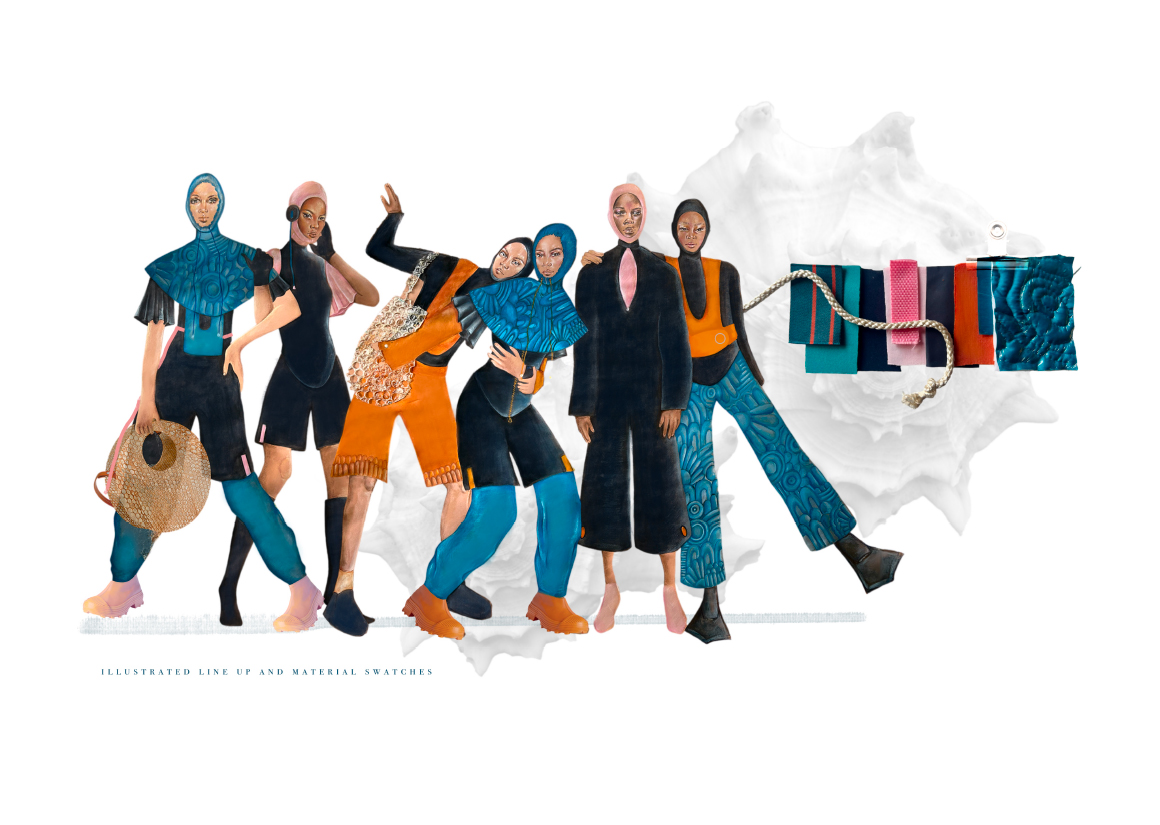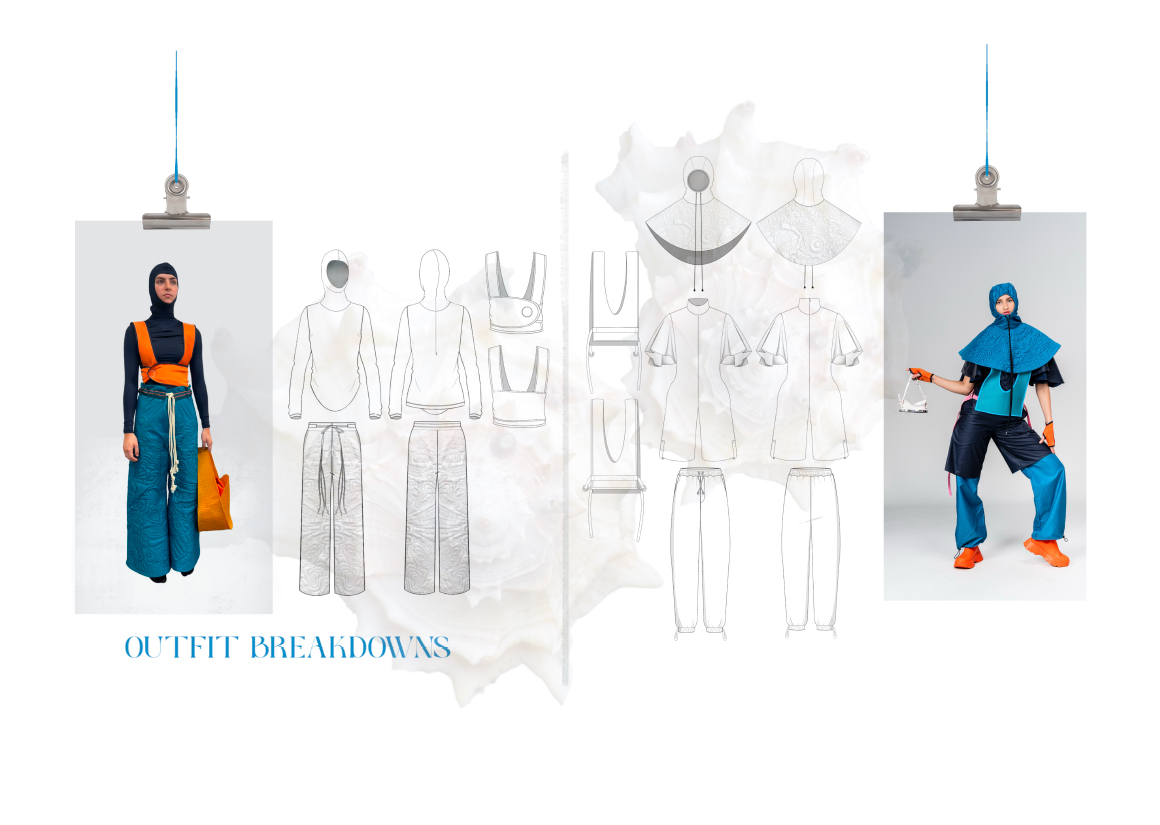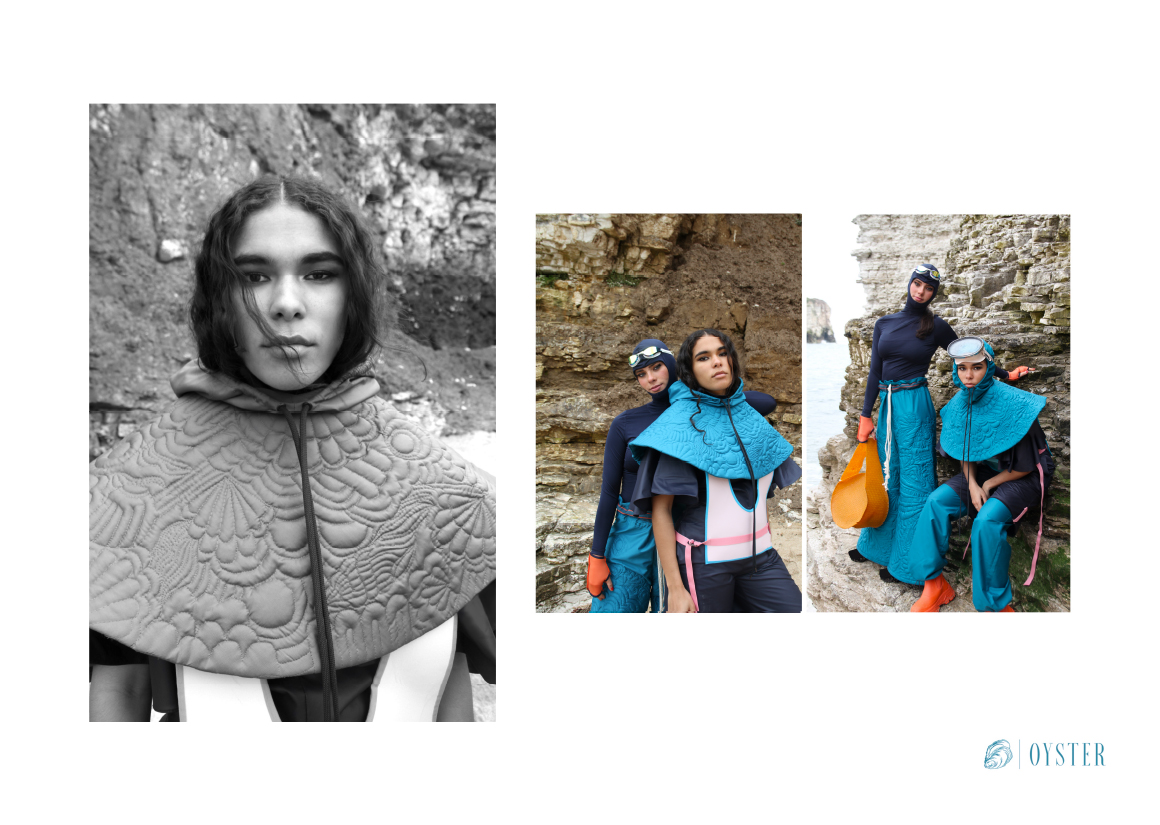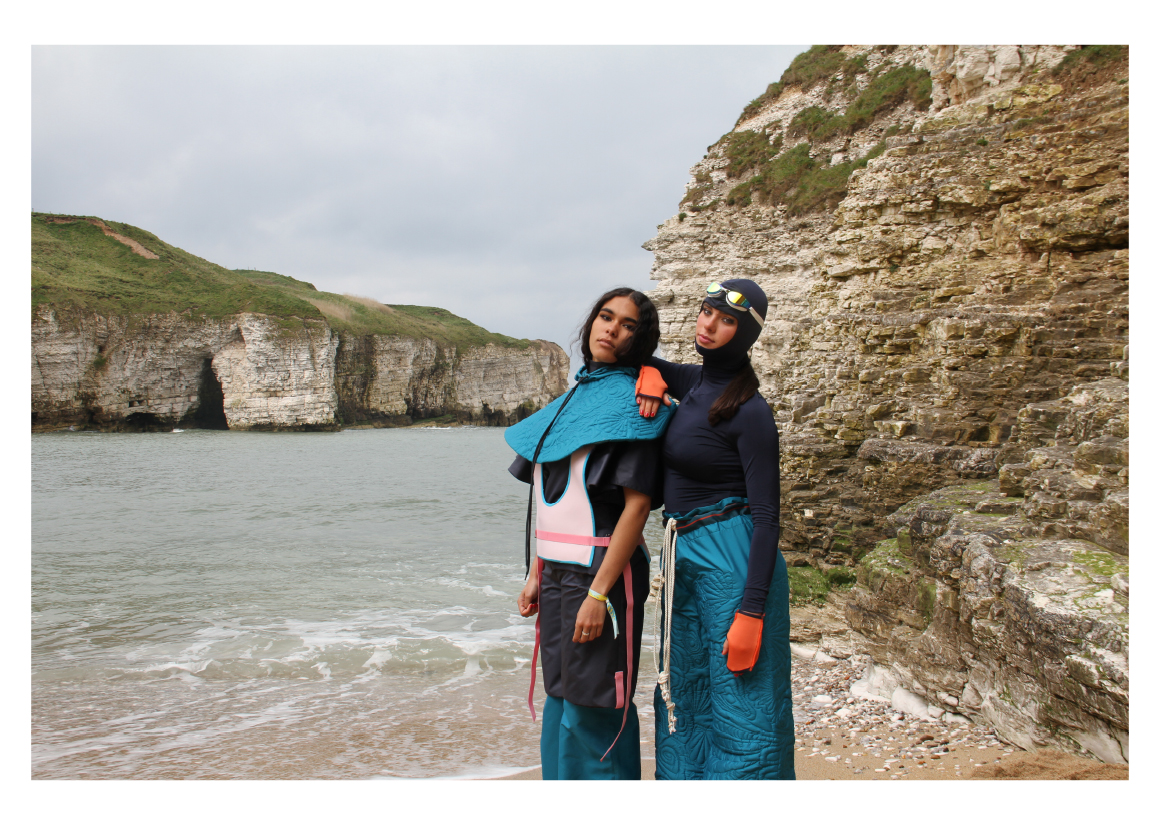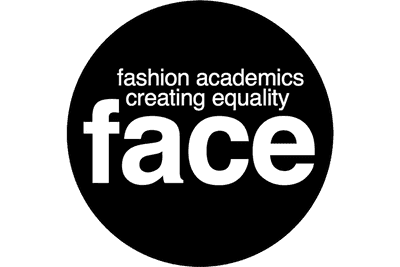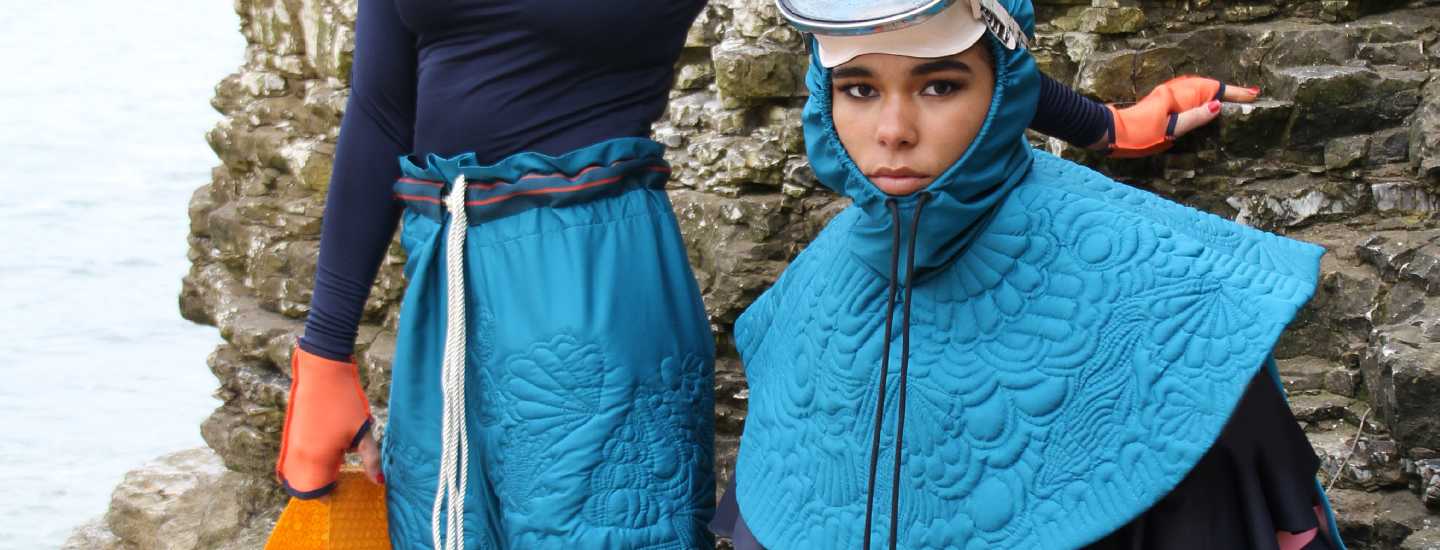
About Me
Hi, I'm Imogen, a Fashion Design Graduate from Nottingham Trent Uni.
Imogen is a womenswear designer known for her bold silhouettes, vibrant colors, and intricate details. While studying, she won the NTU Changemakers Climate Justice Award for her work connecting the environment and humanity. Her designs aim to make a powerful statement about modern society, ensuring each garment resonates with purpose.
After three years studying fashion design, I made it a priority for my final major project to underscore the significance of sustainability in our society. My work frequently explores themes of female empowerment, which is evident in the subjects I choose. With a deep passion for fashion illustration, I bring my designs to life through captivating and dynamic visuals, ensuring they not only tell a story but also make a meaningful impact.
INSPIRATION
I was inspired by the profound connection shared by the Seawomen of South Korea and Japan.
My project originates from my childhood enchantment with sea narratives and mermaid lore. Across generations, these women have relied on the depths of the sea for their sustenance, thus free diving transcends mere employment—it embodies a sacred duty crucial for the survival of their ancient communities. My aim was to bring attention to their challenges, ultimately raising awareness about the broader issues of ocean pollution. I advocate for more conscientious decision-making to combat this degradation.
A visual exploration into the sea women's world revealed the indispensable role of wetsuits in shielding them from the rigours of their aquatic environment. However, amidst the ongoing degradation of our oceans, I warn of the looming threat posed by our collective negligence. Drawing inspiration from nature's own protective mechanisms I seamlessly integrated the concept of sea shells into my designs, symbolising the urgent need for a fortified defence against environmental degradation.
MY WORK
PORTFOLIOS
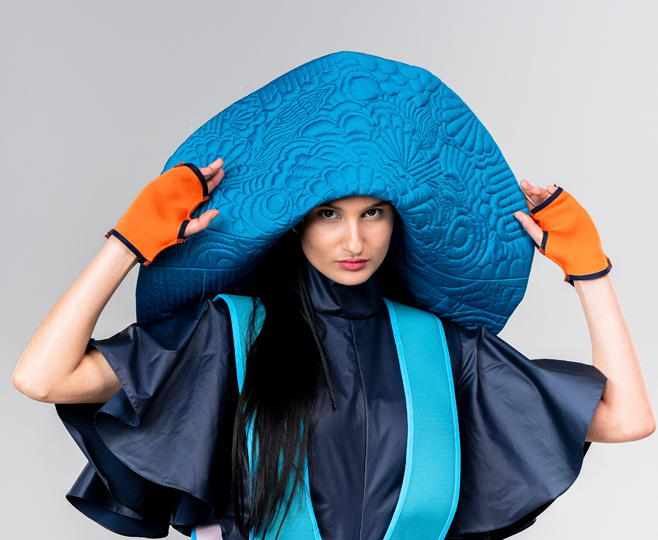
DETAIL
I developed biodegradable bioplastics to combat plastic and ocean pollution.
At the heart of my design narrative lies the symbolic circle motif, representing not only the unity among women but also our interconnectedness with the planet itself. This motif serves as a poignant reminder of the imperative to safeguard Mother Nature, who sustains our very existence. Engaging with the narratives of the sea women allowed me to forge a personal connection, turning plastic pollution from an abstract concept into a harsh reality. My goal is to emphasise the need for conscientious decision-making to combat this degradation. Deepening my research, I uncovered the wider ramifications of plastics on women's health, especially concerning reproductive well-being. In response, I developed custom bioplastics in my kitchen, showcasing one of many innovative materials readily available. If embraced on an industrial scale, this simple shift to biodegradable materials could yield significant positive impacts.



